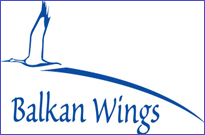Turkey: Turkey Transportation Profile 2012
2012/04/05
Turkey Transportation Profile 2012
Turkish national flag carrier Turkish Airlines (THY) was preparing to ramp up capacity much earlier than previously thought as it was expected to receive its new Airbus A330 freighter in late-2010, reported Air Cargo. THY earlier announced that it had received one maiden aircraft, which was currently undergoing trials and would be one of the test aircraft. While the airline was expected to receive both of the aircraft by late-2011, early delivery of one came on the back of a sharp rise in worldwide air cargo volumes and discounted prices for the test aircraft. THY enjoys a generally buoyant demand for air travel in Turkey and in the immediate Middle Eastern and Mediterranean regions. The company aims to enlarge and renovate its fleet by buying new aircraft; to capitalise on value-added passenger services (such as its relatively new business class); and, to achieve higher seat occupancy.
As Turkey entered the fourth quarter of 2010, the local market environment continued quite strongly favourable for the freight transport sector. The political scene remained stable and democratic, despite some ongoing tensions between the AKP, the Islamist ruling party and the secularist army. The economic scene was marked by strong growth. Based on a stronger than expected performance by domestic consumers and on a net foreign investment inflow, BMI has raised the 2010 GDP growth forecast to 6.3% (up from 4.7% earlier). We believe that the strength of the internal market, diversified industrial sectors, a healthy capital market, a pro-reform government and high long-term leverage potential all suggest Turkey will outperform its European emerging market peers.
We have raised our airfreight volume forecast for this year with 10.2% growth to 1.463mn tonnes, restoring the 10.0% drop experienced in recession-dominated 2009. Supported by strong fundamentals going forward, we see average annual airfreight volume growth of 7.8%, well ahead of GDP, in the fiveyear period running up to 2014.
We estimate that road haulage volume fell by 5.3% to 172.30 billion tonnes per kilometre (bntkm) in 2009 and will recover by 4.1% to 179.35 bntkm in 2010. General growth across the Turkish economy will boost the trucking sector, which remains one of the most important transport modes in the country and is well placed to benefit from a diversified recovery.
Turkey's rail network is small compared to the country's other freight transport modes and to the road network in particular. In 2010, we expect railfreight volume to grow by 5.9% to 22.75mn tonnes. To get a sense of comparison this will represent about one-tenth of cargo moved by road.
The downturn in European trade last year had a major impact on business at the Port of Ambarli (POA). According to the latest figures, general and liquid bulk cargoes fell by 22.4%. A recovery is now under way, but we expect that it will not be until 2013 that pre-2009 levels of business are restored. In 2010, we expect POA tonnage to grow by 15.5% to 3.63mn tonnes. The number of boxes handled at Ambarli was also hard-hit by last year's recession. Box throughput contracted by 18.8%. Here, pre-2009 levels will be achieved again by 2011, indicating that the container recovery will be more rapid than the recovery for general cargo. In 2010, we see total containers handled at the port rising by 12.4% to reach 2.064mn TEUs.
In real terms, Turkey's total trade (exports plus imports) slumped by 10.3% last year, but will recover almost all that lost ground in 2010, with growth of 9.4%. Trade will expand by a further 8.1% in 2011. Rising living standards and a growing middle class will play their part in boosting import demand.
The transportation system in Turkey makes good use of the country’s highly developed infrastructure. For urban transportation, the major cities of the country are equipped with extensive rail networks both under and above ground, while public and private buses carry hundreds of thousands daily. In addition to public transport, taxi services are extremely common, offering a low-cost and expedited means of local travel. For coastal towns like Izmir and Istanbul, ferry services offer many travelers a viable choice, being both fast and far reaching.
For long distance travel, highways are the choice for many, as hundreds of travel agencies run daily bus shuttles to even the farthest towns and cities from major metropolitan centers. Rail is another means of low-cost and widely used transport; the rail network crosses Turkey from east to west. The railways are given special consideration, the network is enlarging and fast-trains enter service yearly.
The air travel option is becoming cheaper every year, thanks to the development of the Turkish aviation industry and the increasing number of domestic carriers. With more than a total of 40 airports in all major population centers, one can fly from one city to another in Turkey in less than an hour, regardless of the distance.
Although logistic services are new in Turkey the sector is growing rapidly. Standing at the crossroads of major trade routes makes Turkey an important candidate to become a logistics centre in the future.

- Turkey News
-
- AFGHANISTAN: UNWTO: International tourism – strongest half-year results since 2010
- TURKEY: Turkey relocates medieval tomb over flooding risk
- QATAR: First Qatar-Turkey refrigerated container route opens
- RUSSIA: Russia, Turkey negotiate deals worth $820 million
- TURKEY: Turkey urges Erbil to cancel referendum on independence
- TURKEY: Erdogan: Fight against drug addiction one of Turkey’s priorities
- Trending Articles
-
- CHINA: China welcomes Guinea to take part in Belt and Road Initiative
- CAMEROON: Poor End of Year Results for Cameroon Students
- CHINA: Chinese-supported infrastructure projects change Zambia's landscape
- UNITED STATES: Spotify, Hulu target students with discounted bundle
- UGANDA: Ugandan Govt Starts Verifying International Academy Teachers
- AUSTRALIA: Queensland Bauxite Gains State Approval of Mineral Development Work Program









